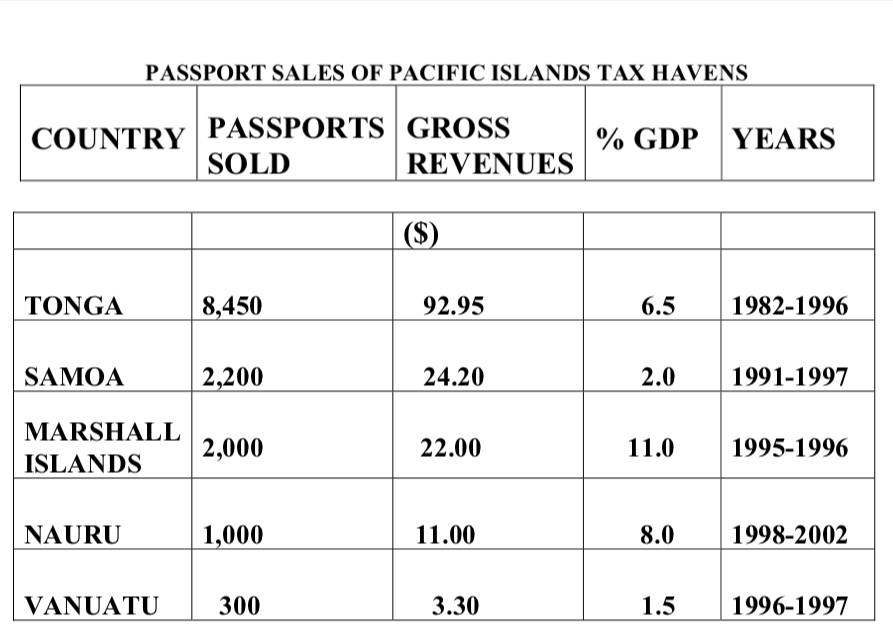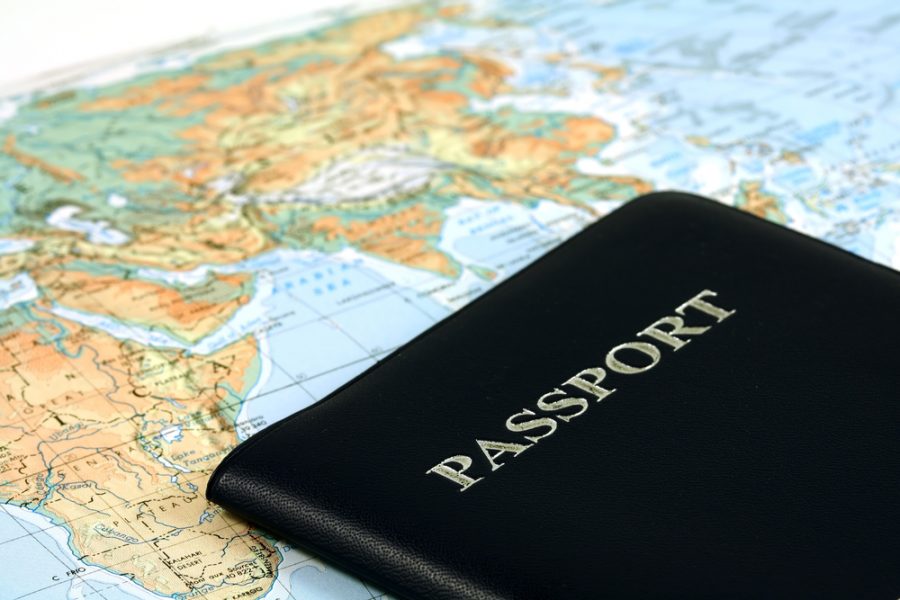The concept of buying citizenship for cash, is not new, have existed in ancient times. Roughly two thousand years ago , Roman citizenship was sold to rich and wealthy for money. In the book of Acts, Paul has a discussion with a Roman Centurion who claims he bought his citizenship “for a lot of money”.
Roman citizenship gave its citizens, right for unimpeded travel across the empire (modern day schengen area), given right to vote and given immunity against torture and death sentence (unless for treason).
History of Past Economic Citizenship by Investment Programs which operated since 18th century and in the 1980’s.
Europe
- Roman Era (212 AD)
- Scotland 18th century – £83
- Ireland 1984-1994 for £1m (150 passports issued)
- Montenegro operated between 2008-2010 for €500K
Caribbean
- St Kitts 1984 – $150K (real estate) or $200K (Government bonds)
- Dominica since 1993 for $50K
- Belize since 1985-2001 for $40K closed in 2001
- Grenada 1997-2001 $40K reopened in 2015
Pacific Islands
Pacific Island Tax Havens in 1990’s apparently sold 13,950 passports raising a minimum of $153,450,000 (about $11,000 each). Wealthy purchasers, mostly ethnic Chinese, consider the price (up to $50,000 per head of a household4) reasonable.
These economic citizenship programs in the pacific operated unofficially, with average family citizenship costing $50K.
- Nauru 1998-2002 $50K raising $92 million (6.5% of GDP)
- Tonga 1982-96 $50K raising $24 million (2% of GDP)
- Vanuatu 1996-97 $50K raising $3.3 million (1.5% of GDP)
- Marshall Islands 1995-96 for $50K raising $22 million (11% of GDP)
- Samoa 1991-1997 $50K raising $24m (2% of GDP)

Roman Era
The Romans also began to develop a relatively flexible naturalization process, so that individuals in newly conquered territories could be easily integrated into the Roman federation and rapidly loyalized as colonial subjects.
The Constitutio Antoniniana of 212 AD was a pioneering development for the modern concept of citizenship. The Constitutio Antoniniana (Edict of Caracalla or the Antonine Constitution) was an edict issued in 212, by the Roman Emperor Caracalla declaring that all free men in the Roman Empire were to be given theoretical Roman citizenship and that all free women in the Empire were to be given the same rights as Roman women. Before 212, for the most part only inhabitants of Italy held full Roman citizenship and roman women had limited citizenship.
Citizenship rights
Ius suffragiorum: The right to vote in the Roman assemblies.
Ius honorum: The right to stand for civil or public office.
Ius commercii: The right to make legal contracts and to hold property as a Roman citizen.
Ius gentium: Roman law to deal with situations between Roman citizens and foreign persons.
Ius conubii: The right to have a lawful marriage with a Roman citizen according to Roman principles
Ius migrationis: The right to preserve one’s level of citizenship upon relocation to a polis of comparable status.
Most important citizenship rights
- Taxes: The right of immunity from some taxes and other legal obligations, especially local rules and regulations.
- Legal system: The right to sue in the courts and the right to be sued.
- Torture: Following the early 2nd-century BC Porcian Laws, a Roman citizen could not be tortured or whipped and could commute sentences of death to voluntary exile, unless he was found guilty of treason.
- Treason: If accused of treason, a Roman citizen had the right to be tried in Rome, and even if sentenced to death, no Roman citizen could be sentenced to die on the cross.
Types of Citizenship
Client state citizens and allies (socii) of Rome could receive a limited form of Roman citizenship such as the Latin Right. Such citizens could not vote or be elected in Roman elections.
- The Cives Romani were full Roman citizens, who enjoyed full legal protection under Roman law.
- The Latini were a class of citizens who held the Latin Rights (ius Latii), or the rights of ius commercii and ius migrationis, but notthe ius connubii.
- The Socii or Foederati were citizens of states which had treaty obligations with Rome, under which typically certain legal rights of the state’s citizens under Roman law were exchanged for agreed levels of military service.
- The Provinciales were those people who fell under Roman influence, or control, but who lacked even the rights of the Foederati, essentially having only the rights of the ius gentium.
Roman citizenship was also used as a tool of foreign policy and control. Colonies and political allies would be granted a “minor” form of Roman citizenship.
The granting of citizenship to allies and the conquered was a vital step in the process of Romanization. This step was one of the most effective political tools and was perhaps one of the most important reasons for the success of Rome).
Dr. Kalin coined the word ‘ius Doni’ means citizenship for donation or contribution to the country. In his paper says … The proliferation of investment migration programs in recent years makes it clear that just as many nations are embracing the idea that it is well worth bestowing citizenship on carefully vetted individuals who bring benefits that include — but are not limited to — capital, connections, and talent.
Scotland
In 18th-and 19th-century England, there were a large number of German, German-Russian, and Italian merchants who acquired citizenship for merely economic reasons, rather than with the intention of settling in England. Anyone familiar with modern- day citizenship-by-investment will recognize that this Victorian era practice bears a very close resemblance to what happens across the globe today.
The British Empire was built with the significant help of economic citizens from continental Europe, who were attracted to the UK by the possibility of acquiring citizenship through investment. A special citizenship-by-investment program prevailed in Scotland, which continued long after the Union with England in the 18th century: an investment of GBP 83 in the Royal Bank of Scotland allowed a foreign citizen to become a citizen of Scotland and, by extension, the UK, according to Dr Kalin’s paper.
Ireland
The Irish government operated economic citizenship by investment for a decade between 1984 and ended in 1998.
The “economic citizenship” scheme operated by the Irish government allowed anybody to make a one-time investment of £1 million ($1.7m) in return for instant citizenship within 90 days. Under the scheme, introduced in 1984, applicants seeking naturalisation had to make an investment of £1 million per person in the State. The investment had to be for job creation or job maintenance. Beneficiaries also had to buy a home in Ireland and reside there for at least 60 days during their first two years of citizenship.
In April 1998, The Irish government has finally abolished the “passports for sale” scheme, ending a political controversy involving Saudi and Pakistani businessmen. The scheme was ended in April 1998 officially outlawed in 2004, having existed for 10 years. Its existence only came to public notice in 1994. The scheme came to public attention in 1994 when it emerged that a wealthy Saudi businessman, Mr Khalid Masri, had invested €1.27 million in Mr Albert Reynolds’s family firm, C&D Petfoods, under the scheme.
By 1998 approximately 150 passports had been issued under the scheme. No passport issued under the scheme has ever been revoked.
St Kitts and Nevis
St. Kitts has the oldest economic citizenship program in the eastern Caribbean under the Citizenship Act of 1984. The Act contains three investment options to be paid in the Eastern Caribbean (EC) dollar-equivalent of U.S. dollars. The options are:
1) $200,000 in St. Kitts and Nevis ten year Treasury bonds, or
2) $250,000 in an investment project approved after March 1996, or
3) $150,000 in a real estate development approved prior to March 1996.
In addition, registration fees for Kittian citizenship are the EC dollar-equivalent to $35,000 for the head of household, $15,000 for the spouse, and $15,000 for each dependent under age 18.
In 2006, the tiny Caribbean state of St. Kitts and Nevis was in deep trouble. St. Kitts and Nevis had run a citizenship-by-investment program—had sold passports—since 1984, but it didn’t get much attention and was never a moneymaker until Dr Kalin and his company Henley and Partners helped St Kitts citizenship program to become a major success, according to Bloomberg.
Dominica
Dominica enacted economic citizenship act in 1994. Dominica citizenship or passport can be obtained for a $50,000 direct payment, or $75,000 in government bonds, applicants acquire citizenship, a passport. As of 1999 there were 1000 passports issued in Dominica.
The government of Dominica needs enacted strict regulation of the economic citizenship program, to protect the country and its financial sector from the risk of abuses.
Grenada
The Grenada Citizenship Amendment Act of 1997 allows foreign nationals to purchase citizenship for a family of five for approximately $40,000, with no obligation to live on the island.
Belize
The amendments made in 1985 to the Belizean Nationality Act, 1981, provided for the registration of persons who make substantial contributions to the economy and or well-being of the nation. In 1995 the Government’s Economic Citizenship Investment Programme was redesigned to further enhance the programme’s credibility and integrity. The Programme was administered by a special unit within the Ministry of Finance.
After an amendment to the Constitution, it was possible for Citizenship to be granted to foreign investors who made a “substantial contribution to the economy and or well-being of Belize”. The program full citizenship rights for economic citizens, except for the right to vote
Belize citizenship by investment program (CIP) was running until 2002, until security concerns following the 9/11 terrorist attacks in the US, abuses and financial issues forced Belize to suspend its Citizen-by-Investment program in 2002.
Under the economic citizenship scheme, foreigners are required $40,000 investment and $10,000 professional fees, totalling US$50,000 depending on the number of dependents.
The Government appointed BECIP Unit (Belize Citizenship by Investment Unit) and Scrutinizing Committee to ensure proper functioning of the citizenship scheme in Belize.
Belize used the proceeds of economic citizenship program to reduce debt, reconstruction and development
- 40% of all money collected is transferred by the Central Bank into a Consolidated fund. This fund is used exclusively by the Ministry of Finance to service the Government’s external debt.
- 30% of the sum raised is transferred by the Central Bank into a Special Economic Development Fund. This money is used solely to finance Capital Projects in the country.
- The remaining 30% of the money collected is transferred by the Central Bank to an account administered by the Reconstruction and Development Corporation. This is then used to provide low interest financing to entrepreneurs in the Agriculture, Tourism, Construction and other productive sectors of the Economy, to support the work of Religious, Charitable, Benevolent and non governmental organizations.





